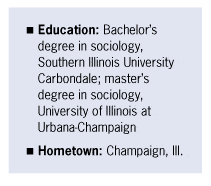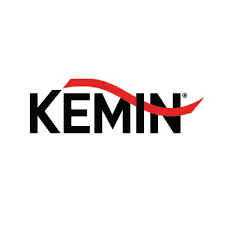Frank Russell: Founder, Prositions Inc.

For Frank Russell, the earliest days of a start-up company are always the most exciting.
These are heady days for Russell – once again.
Not quite a year ago, the serial entrepreneur launched Prositions Inc., a West Des Moines-based business that provides career transition services for displaced business professionals. The company was born from a need Russell saw as he was selling another brainchild of his, GeoLearning Inc.
Russell, 61, is the kind of leader whose charisma seems to rub off on those who work for him and fuels their success. GeoLearning, the award-winning learning software company that he launched in 1997, became one of the fastest-growing businesses in the United States, earning a spot on the Inc. 5000 list for seven consecutive years.

“It wasn’t something I planned,” Russell said. “At most, it was coming in wanting to help these folks. But when I looked at it more, I thought, ‘Wait a minute here; this could be very lucrative.’”
Time to sell
Russell, who moved to Dallas in 2007 after living in Iowa for 30 years, has ownership stakes in a variety of business and real estate ventures, “some successful and some not,” in Iowa, Missouri and Texas. Prositions “happens to be the one I’m putting the most attention and money into right now,” he said.
Russell first came to Greater Des Moines in 1977, and in 1981 was named head of training for Massey Ferguson’s North American division in Des Moines, and then worked for a couple of years for American Media Inc. as executive vice president.
In 1985, at the age of 35, he launched his first company, Excellence in Training Corp. Based in West Des Moines, the company specialized in producing training videotapes for large corporations that experienced high turnover in their sales staffs. By developing a cost-effective model to distribute videos to each of his clients’ stores, he built the company into one of the largest distributors of video-based training systems in the United States.
Shortly after he sold Excellence in Training in late 1996, Russell started GeoLearning as a way to use the Internet to deliver corporate training tools to companies. From a modest start in the basement of Russell’s home, GeoLearning’s Web-based learning management programs grew to attract major corporate clients, including Nike Inc., Costco Wholesale Corp. and Dell Inc., among more than 800 organizations from 160 countries.
Russell said it became clear in the past couple of years that the learning software market was consolidating, and he began looking for opportunities to sell GeoLearning.
“In this instance, we were going along the path to take it public, and it just happened that the right offer came along at the right price,” he said. “There were other competitors that were being snatched up, and if we were to be a stand-alone, I think in 24 months we would have been in a very difficult position to do anything. So it was a matter of timing and seeing what was going on in the marketplace.”
One of the most difficult steps for a start-up company is raising capital, Russell said.
“That was one of the things that was a little easier this time, because we made some money from the sale of (GeoLearning),” he said, “So I didn’t have to spend as much time on seeking start-up capital.” With Prositions, Russell said his strategy is to build the company’s reputation using existing resources prior to approaching investors.
In each of his ventures, Russell has stuck to what he knows best: applying technology to improve human-resources processes.
Russell sees significant potential for growth in his newest business. Already a $2 billion market in the United States and twice that figure globally, the outplacement services industry has plenty of room for new players, he believes.
A new model
For years, the three largest outplacement firms – Right Management Inc., Drake, Beam, Morin Inc. and Lee Hecht Harrison — have dominated the industry, each operating networks of offices around the globe to provide their services. With the Internet and other technologies available, though, that decentralized approach has become outmoded and inefficient for the way people find jobs today, Russell said.
“So our model comes along and says, ‘We believe you can have people spread out all over the country and the world, and we can do a better job of helping you find a job by leveraging the Internet, rather than using these little offices,’” he said.
Using a “tag-team” approach, Prositions connects displaced employees of its client companies with career strategists who are versed in social media job-search skills, together with coaches who are seasoned human-resources professionals.
“This whole approach lets us individualize that solution for each candidate, as opposed to this cookie-cutter group stuff,” Russell said. “And (the coaches and career strategists) can be anywhere. I have people in New York, on the West Coast. What we’ve centralized is the technology and administrative support here, along with the sales team. But the talent we use professionally can be anywhere.”
An indication of the effectiveness of Russell’s model is how quickly it has worked for Prositions’ first clients. Of the 40 former former GeoLearning employees with whom Prositions worked, 39 found new positions within 72 days, and one returned to school.
Prositions’ services can be applied equally well to Baby Boomers who are nearing retirement, or to people being downsized in one area of the country who might be able to retrain for a job in another division of their company, Russell said.
Prositions’ sweet spot is organizations with between 1,000 and 10,000 employees in industries that are experiencing rapid change, such as government agencies and technology companies that are reorganizing, expanding or downsizing.
“What we eventually want to be is the resource you come to when you want to reshape your organization, and you want to transition people elegantly out of the organization, and you don’t have to worry about that,” Russell said. “We’re going to help you make that happen, and hopefully as painlessly as possible for the organization and for the people being transitioned.”
By late June, Prositions had already hired a mix of 10 coaches and career strategists, each of whom was required to complete a company-designed training program and pass a series of tests, including an online role-playing session, before working with clients.
By teaching clients career-search skills, Prositions is empowering them for the next inevitable downsizing or transition point, Russell said.
“Our model is very much, ‘We’re going to teach you how to fish,’” he said. “So basically, you’re going to walk away with something of value. If you don’t have a resume, we want you to write the first draft, no matter how crappy it is. Just put something down, and we’ll help you from there. Then we’re not writing it for you; we’re helping you learn how to write that.”
Russell knows the management team he has chosen for Prositions are seasoned anglers, which gives him the confidence to leave the day-to-day operations to them. Robin Salsberry, who had been GeoLearning’s vice president for human resources, serves as Prositions’ president and chief operating officer; Sam Gill, Prositions’ chief financial officer, has worked with Russell for more than 20 years.
In the final analysis, good people will prove more valuable than technology, Russell said.
“As much as we try to leverage technology, business is really still about working people-to-people,” he said. “People make the decisions to buy. They just don’t go online to buy our product; we have to sit down with them to show them what we can do.
“I see so many people that come up with this great technology idea, and they think it’s going to conquer the world. And I go back and tell them, ‘It’s not always the best technology that wins.’ It’s often somebody who takes an idea that’s already there but made it better in terms of service and delivery. I think that’s key.”











